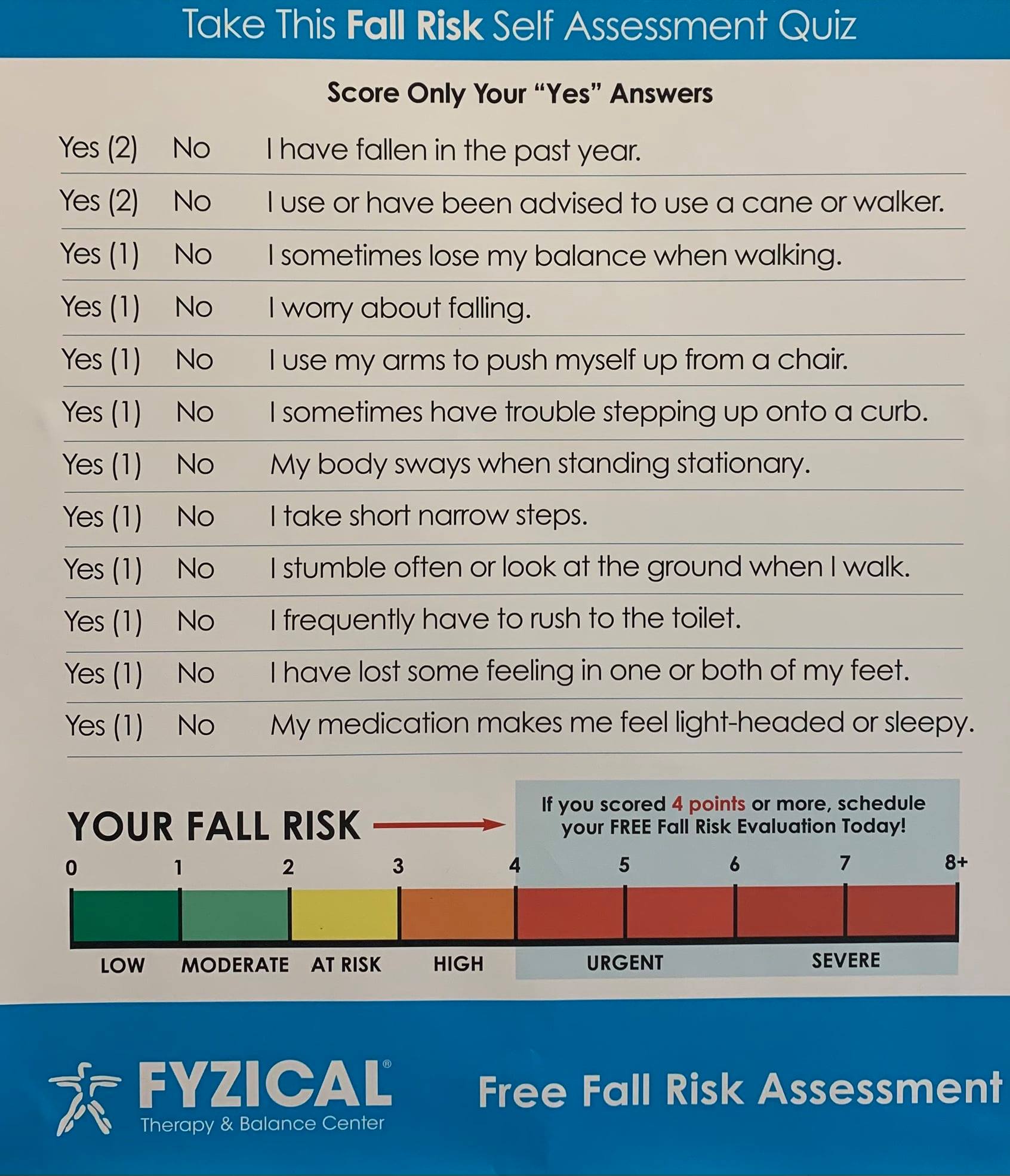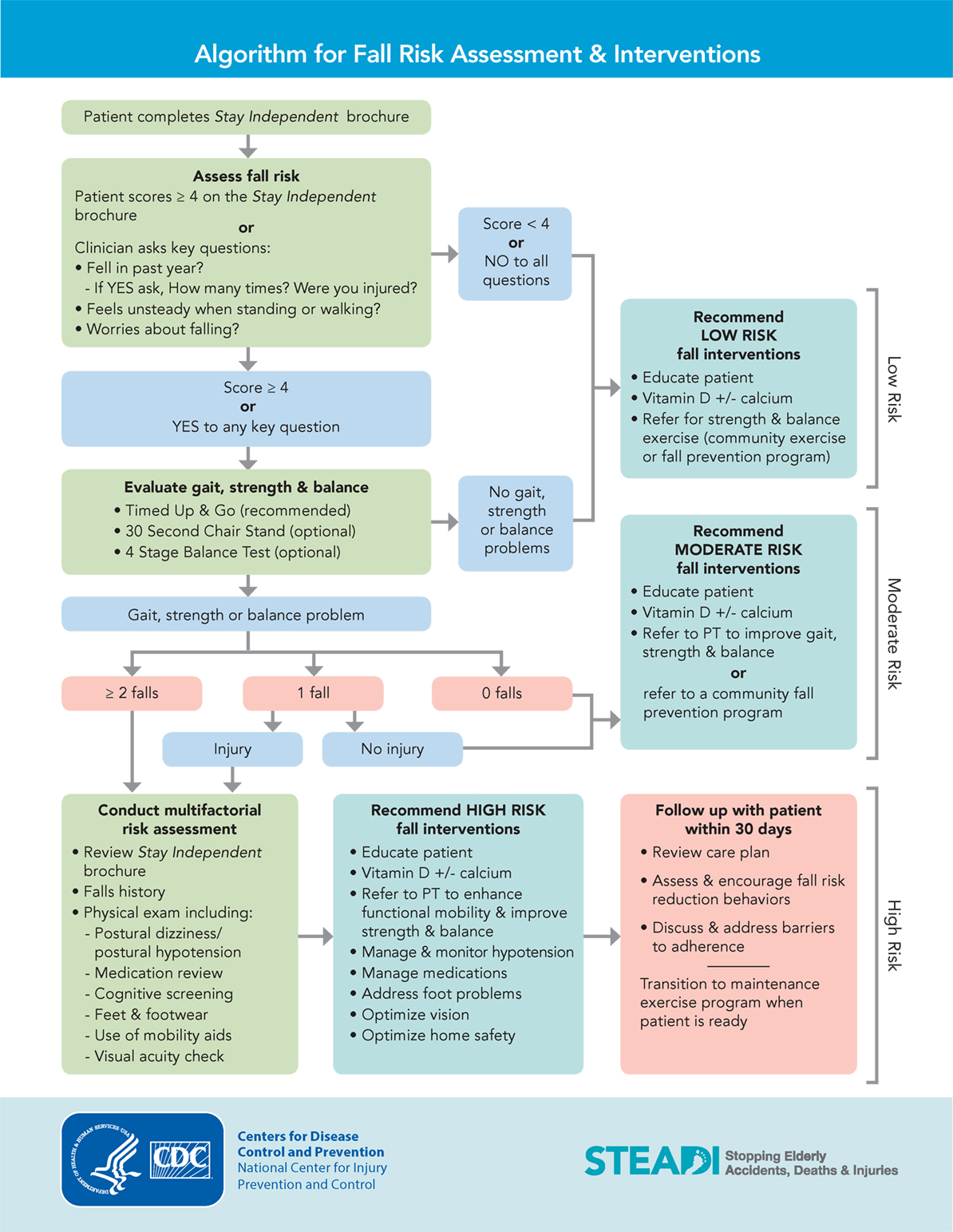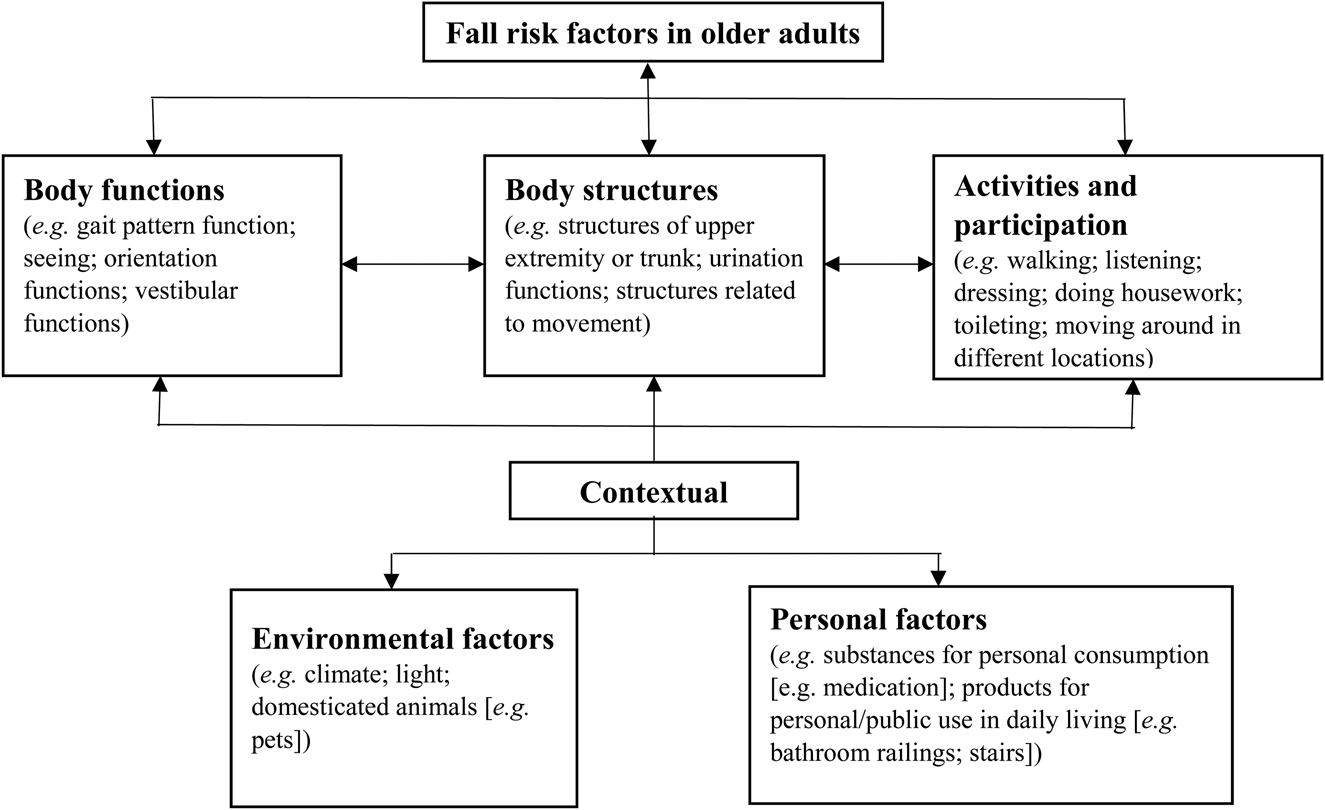See This Report about Dementia Fall Risk
See This Report about Dementia Fall Risk
Blog Article
7 Easy Facts About Dementia Fall Risk Shown
Table of ContentsThe Only Guide for Dementia Fall RiskUnknown Facts About Dementia Fall RiskDementia Fall Risk - The Facts9 Easy Facts About Dementia Fall Risk ShownNot known Details About Dementia Fall Risk
Ensure that there is a designated location in your clinical charting system where staff can document/reference scores and document appropriate notes related to drop avoidance. The Johns Hopkins Autumn Risk Analysis Tool is one of many tools your team can use to aid avoid unfavorable medical occasions.Individual falls in medical facilities are common and devastating negative events that linger despite decades of effort to lessen them. Improving communication throughout the examining registered nurse, treatment group, client, and patient's most included loved ones might strengthen loss avoidance efforts. A group at Brigham and Women's Hospital in Boston, Massachusetts, looked for to create a standard loss prevention program that focused around improved interaction and patient and family interaction.

The advancement team emphasized that successful execution relies on person and personnel buy-in, integration of the program into existing operations, and integrity to program processes. The group noted that they are facing exactly how to ensure continuity in program implementation throughout periods of dilemma. Throughout the COVID-19 pandemic, as an example, a boost in inpatient drops was connected with restrictions in patient interaction along with constraints on visitation.
Not known Incorrect Statements About Dementia Fall Risk
These events are generally thought about preventable. To apply the treatment, organizations need the following: Access to Autumn suggestions sources Fall pointers training and retraining for nursing and non-nursing personnel, consisting of new registered nurses Nursing operations that allow for individual and family members engagement to perform the falls analysis, make certain use of the avoidance plan, and conduct patient-level audits.
The outcomes can be extremely damaging, usually accelerating patient decline and creating longer healthcare facility stays. One study estimated keeps raised an extra 12 in-patient days after a patient loss. The Fall TIPS Program is based on appealing clients and their family/loved ones across three major procedures: evaluation, individualized preventative treatments, and auditing to guarantee that individuals are engaged in the three-step fall avoidance process.
The individual analysis is based upon the Morse Fall Range, which is a confirmed loss danger analysis tool for in-patient hospital settings. The scale includes the six most common factors patients in medical facilities fall: the client autumn history, risky problems (consisting of polypharmacy), usage of IVs and various other external gadgets, psychological standing, stride, and movement.
Each danger variable relate to one or even more workable evidence-based interventions. The nurse creates a plan that includes the interventions and shows up to the care team, link person, and family members on a laminated poster or printed visual aid. Registered nurses establish the plan while meeting the individual and the individual's family members.
Excitement About Dementia Fall Risk
The poster functions as a communication device with various other participants of the client's care team. Dementia Fall Risk. The audit element of the program includes examining the patient's understanding of their threat aspects and avoidance strategy at the unit and medical facility degrees. Registered nurse champions conduct a minimum of 5 specific interviews a month with people and their households to inspect for understanding of the fall avoidance strategy

An estimated 30% of these falls result in injuries, which can vary in severity. Unlike other adverse occasions that require a standard clinical feedback, fall avoidance depends highly on the needs of the patient. Consisting of the input of individuals that understand the client best allows for greater customization. This strategy has actually proven to be more efficient than fall avoidance programs that are based primarily on the these details manufacturing of a danger score and/or are not personalized.
Getting My Dementia Fall Risk To Work

Based upon bookkeeping results, one site had 86% conformity and 2 websites had more than 95% compliance. A cost-benefit evaluation of the Loss pointers program in 8 medical facilities approximated that the program expense $0.88 per individual to apply and resulted in financial savings of $8,500 per 1000 patient-days in straight costs connected to the avoidance of 567 check that tips over 3 years and 8 months.
According to the innovation team, companies curious about carrying out the program needs to perform a readiness assessment and falls avoidance voids evaluation. 8 In addition, organizations need to ensure the essential framework and workflows for application and create an application plan. If one exists, the organization's Fall Avoidance Job Pressure should be included in preparation.
Rumored Buzz on Dementia Fall Risk
To begin, organizations should ensure conclusion of training modules by registered nurses and nursing assistants - Dementia Fall Risk. Health center personnel should evaluate, based upon the requirements of a medical facility, whether to use a digital wellness record hard copy or paper version of the autumn avoidance plan. Applying teams need to recruit and educate registered nurse champs and develop procedures for bookkeeping and reporting on loss data
Personnel require to be involved in the process of revamping the process to engage individuals and family members in the evaluation and prevention strategy procedure. Systems must remain in place to ensure that units can understand why a loss happened and remediate the reason. Extra specifically, registered nurses need to have networks to supply ongoing responses to both team and unit leadership so they can readjust and boost autumn avoidance workflows and interact systemic troubles.
Report this page